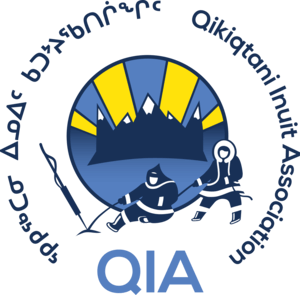Nunavut, October 5, 2023 – Today, the Qikiqtani Inuit Association (QIA) is pleased to announce the establishment of the Advisory Council for the Qikiqtani Project Finance for Permanence (Q-PFP) project. The core objective of the Q-PFP is to enhance the deep and meaningful connection between Inuit and their ancestral lands and waters through investments in an Inuit-led conservation economy. This council brings together key supporters committed to advancing the unique and vital ecosystem that has sustained Inuit for millennia.
The Advisory Council is composed of organizations that have been vetted by QIA to ensure alignment with QIA’s values and visions for conservation. Together we share a commitment towards achieving tangible benefits in all Qikiqtani communities targeting long-term durable conservation outcomes in the region. This work is driven by the need to safeguard and advance Inuit governance, Inuit stewardship, targeted infrastructure and expanded economic opportunities for Inuit relating to the offshore waters adjacent to the Qikiqtani region.
Qikiqtani Inuit are witnessing first-hand climate change impacts on their ancestral lands, waters, and the wildlife that has sustained their way of life since time immemorial.
The founding members of the Advisory Council include:
The Qikiqtani Inuit Association: The driving force behind the Q-PFP initiative, QIA represents the rights and interests of the Inuit of the Qikiqtani Region and has been instrumental in shaping the vision for conservation in the region.
The Pew Charitable Trusts: uses data to make a difference and has a long history of supporting global conservation efforts in partnership with Indigenous communities.
Gordon and Betty Moore Foundation: shares a deep commitment to advancing positive outcomes for future generations worldwide and supporting the Q-PFP’s mission.
ZomaLab: contributes to the collective effort to protect the unique and diverse ecosystems of the Qikiqtani Region.
Oceans North: plays a pivotal role in facilitating the planning and implementation of the Q-PFP, aligning with their mission of protecting Arctic marine environments and championing Indigenous leadership in conservation.
For more information, please contact:
Karen Flaherty
Director, Strategic Communications
Qikiqtani Inuit Association
(P) 867.975.8398 or toll-free 1.800.667.2742
kflaherty@qia.flywheelsites.com
Backgrounder
The PFP is a financial model that brings together governments, communities, funders, and other partners to secure long-term conservation, full and sustained funding, and community benefits through a single, transformative agreement. Each PFP project is guided by rigorous conservation and community development plans and rigorous financial models, with all commitments guaranteed upfront to ensure durable results. The PFP model is one of the most promising strategies for achieving durable protection at scale while also benefitting local communities through conservation-linked community and economic development. PFP started in Canada with the Great Bear Rainforest PFP in British Columbia, and, to date, it has been used in an additional five nations—Brazil, Costa Rica, Bhutan, Peru, and Colombia—to durably conserve more than 120 million hectares of critical ecosystems.
In December 2022, Prime Minister Justin Trudeau allocated up to $800 million Canadian to Indigenous-led conservation initiatives, including Q-PFP, underscoring the federal government’s commitment to advancing this work. Subsequently, in June 2023, the Government of Canada formalized a mandate to negotiate the Q-PFP, highlighting the need to secure resources from philanthropic organizations.
The establishment of the Advisory Council is a critical step in raising the necessary funds for the Q-PFP, with Canadian and international philanthropic contributions playing a pivotal role alongside government support. The Advisory Council will oversee the development and implementation of a Fundraising Strategy.

